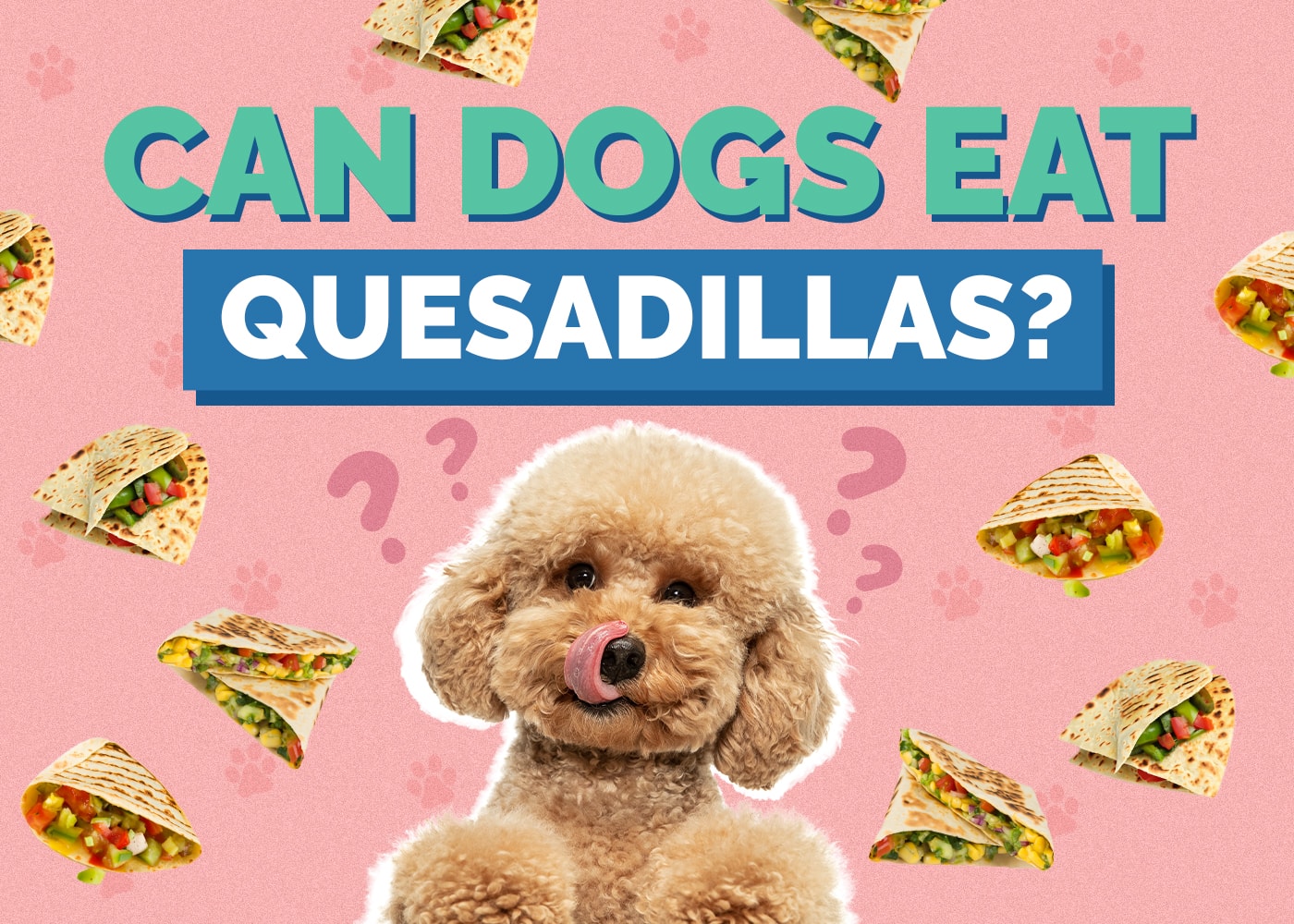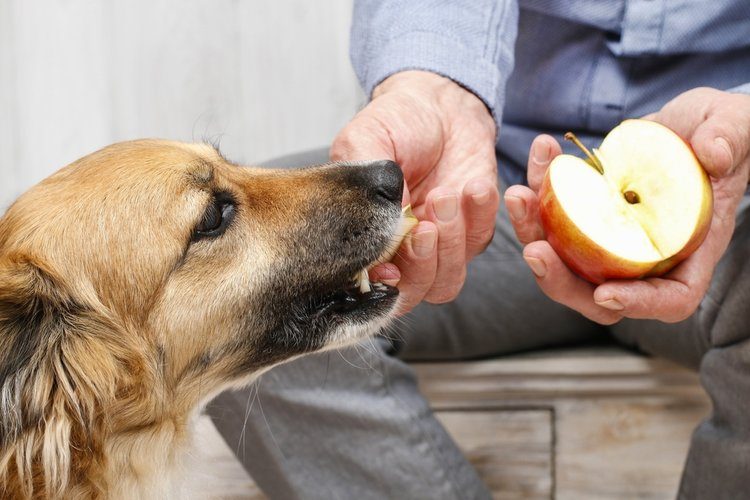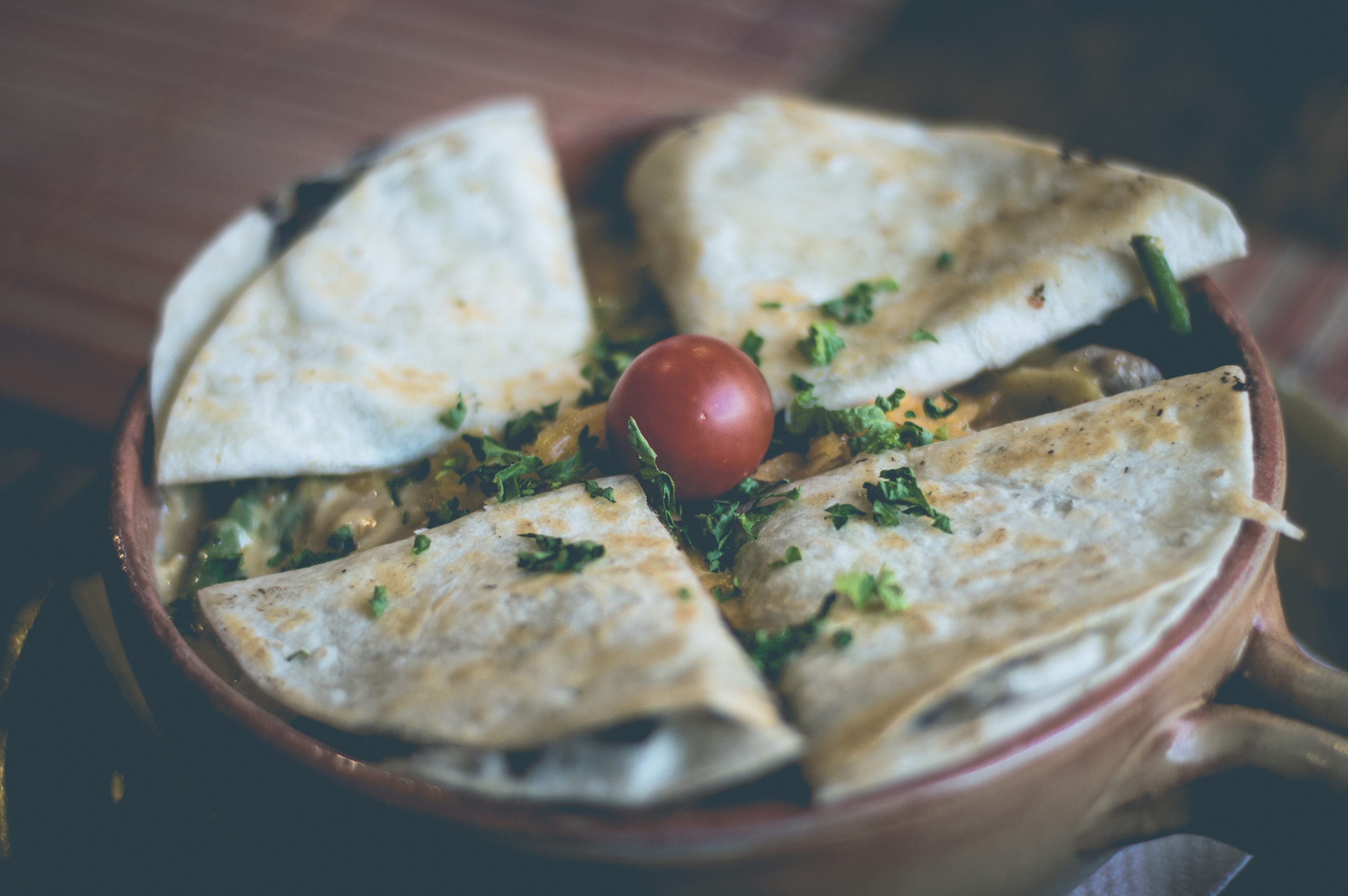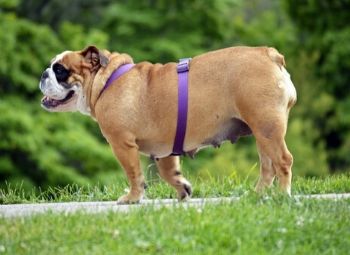Can Dogs Eat Quesadillas? What Science Says!
Updated on

Dogs love to eat, especially when it comes to any kind of human food. If you are like most dog owners, you have caught your dog trying to steal some of your food at least once, like chips or quesadillas. However, just because they like to eat human food doesn’t mean that it’s good for them.So, can and should dogs eat quesadillas? Are these good for their health? The short answer is that quesadillas are not the best food choice for any dog, though they aren’t toxic. Let’s dig deeper into this issue.
 Why Quesadillas Are Not Ideal for Dogs
Why Quesadillas Are Not Ideal for Dogs
Quesadillas are delicious, but they tend to be filled with salt and fat, which dogs should not consume much of. Salt in itself isn’t harmful to dogs. In fact, they require it in their diet to stay healthy. However, they will get all the salt that they need from the high-quality commercial food that they should be eating every day. Consuming too much salt can lead to the development of elevated blood pressure levels and contribute to heart disease.
Also, dogs don’t have enough lactase in their systems to properly digest dairy products. Lactase is an enzyme that is responsible for breaking down the lactose found in foods like cheese and milk. When a dog eats too much dairy, they could end up suffering from digestive pain and diarrhea. The excess fat in quesadillas can lead to problems like obesity, which can lead to serious health conditions like diabetes.
Furthermore, onions and garlic are toxic to dogs and should be avoided at all costs. A compound called allium in these foods affects red blood cells, causes gastrointestinal inflammation, and produces side effects such as abdominal pain, diarrhea, and vomiting. Even salsa should be avoided.
Don’t Panic If Your Dog Does Eat a Quesadilla
There is no reason to panic and head to an emergency vet if you catch your dog sneaking a piece of quesadilla off your plate or eating a bit that falls on the ground. A few bites are not likely to have any negative effects on your dog.
Just make sure no spices, garlic, or onions are included, and keep an eye on their digestive health and any signs of distress, such as excessive thirst and diarrhea. If all seems good, there is nothing to worry about. It’s when your dog is fed large pieces or whole quesadillas regularly that worry might be warranted. Just know that there are plenty of other, healthier human foods that you can treat your pet to.
Alternative Human Snack Options to Consider
Although there are many human foods that dogs shouldn’t ever consume, there is plenty that they can safely eat and that will benefit their overall diet. For example, carrots are excellent sources of fiber and vitamin A, which canines need for good health. They can also help remove plaque and keep a dog’s gums healthy while being chewed on.
- Apples— These contain vitamins, minerals, and antioxidants that will help keep your dog’s immune system in good shape.
- Unsalted Peanut Butter— It is full of protein, healthy fats, and nutrients like niacin that can help round out a tasty diet.
- Popcorn With No Butter or Salt— Plain popcorn is low calorie and full of fiber, making for a perfect treat between meals.
- Cashews— These contain minerals and antioxidants necessary for good health, and they can help underweight dogs gain weight.
- Coconut— It’s rich in lauric acid, which can help your dog fight off bacterial infections and viruses. It can even relieve dry, itchy skin.
All these foods should be considered occasional snacks and not a large part of your pup’s overall diet. A high-quality commercial food contains all the nutrients that they need to thrive, so human snacks are simply supplemental.

 In Conclusion
In Conclusion
Dogs are typically not finicky eaters, and they don’t know what is and isn’t safe for them to nibble on. Therefore, it is our responsibility to keep unsafe and unhealthy foods away from them. Quesadillas are not the worst food that your dog could eat, but they’re not healthy. Consider choosing something just as tasty yet healthier to offer them instead.

 Why Quesadillas Are Not Ideal for Dogs
Why Quesadillas Are Not Ideal for Dogs










